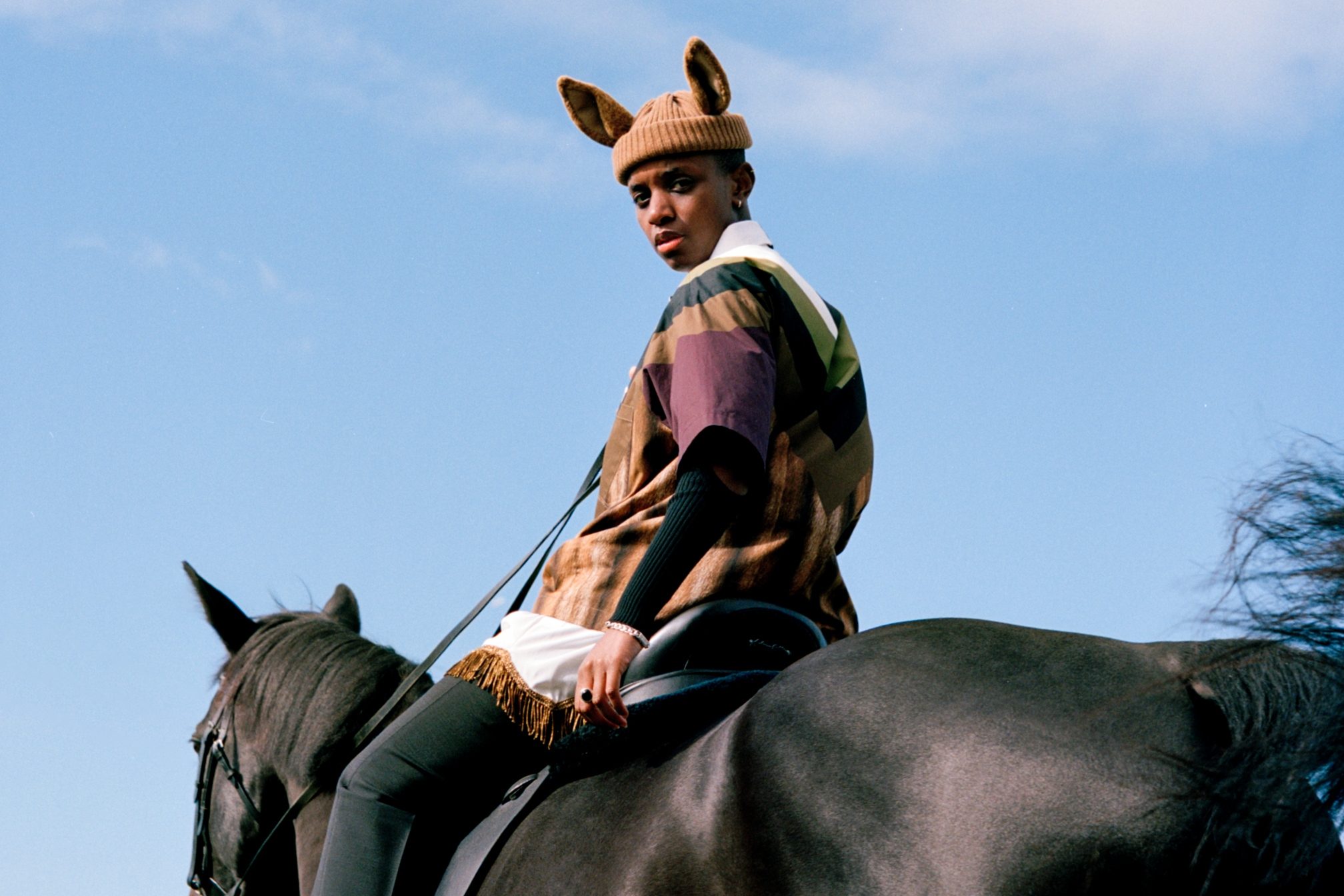 Features
Features
“Take ownership and command respect”: SHERELLE is leading a paradigm shift in dance music
SHERELLE's blistering sounds are a battle cry as she leads the charge for a new generation of artists focused on dismantling and reshaping dance music for the better. The Hooversound boss speaks to Seb Wheeler about forcing change, caning footwork to techno heads and empathetic community building
SHERELLE has been the dance music success story that has defined the last couple of years. From Walthamstow to Paris Fashion Week to the cover of Mixmag on an actual horse, the self-styled speed demon has taken her chance at glory and run with it at a canter, bagging viral moments, industry accolades, celebrity fans, and amassing a legion of club kids who are falling over themselves to mainline her uncompromising blend of hardcore, Jungle, d’n’b and footwork straight into their hungry ears.
Promoters and brands are queuing up to work with our Shezza, but despite the rocket-fuelled momentum this remains no-bullshit rave for those who are eager to witness – and experience – a paradigm shift in electronic music. “I've always felt that parts of the electronic music scene are boring and safe, and if I ever had the chance to I would try and change it,” SHERELLE says from an armchair in North London on an early autumn evening. A committed Gooner, she uses a footy analogy to explain the space that she and her contemporaries (artists like LCY, YAZZUS, Jossy Mitsu, Dobby, NAINA, A.G, and Manara) have grown into and are currently holding court in the UK scene.
“There's a big old goal in front of you and there's no goalkeeper. And you know why there's no goalkeeper in it? Because the goalkeeper’s gone for something and it's been the wrong decision, and it's an effort on your team's part to get the ball into the net with the goal wide open,” SHERELLE says. “So there was this gap in which I and other people were able to fill and now we're through the gap, how are we going to destroy and dismantle the boring parts of music and put people on their toes? It takes a lot of people to be like ‘fuck this’ and do their own thing. Eventually people are going to turn around and go ‘What are they doing over there?’ and that's what I've always wanted to try and do.”

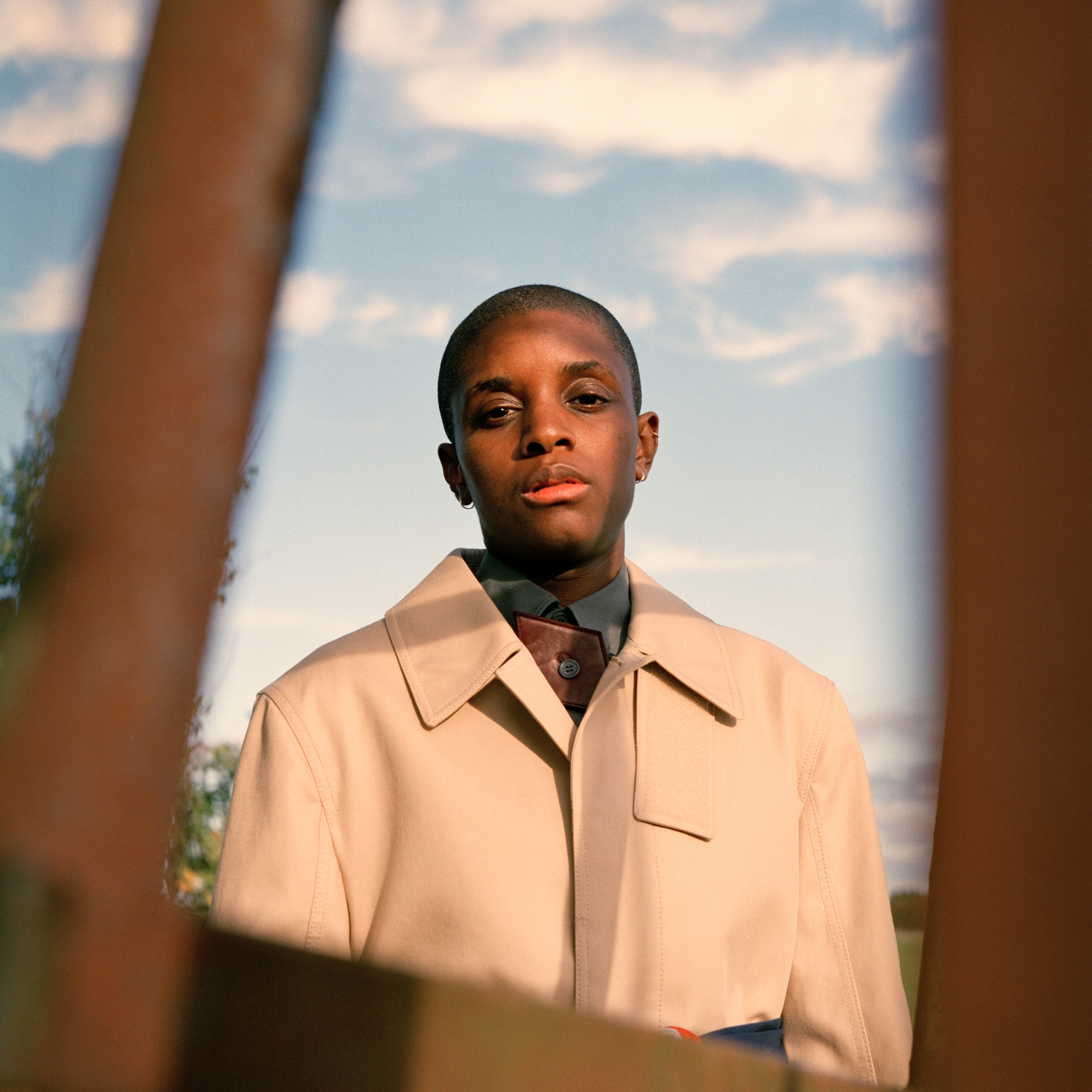
Never mind a convincing victory, SHERELLE and her peers have blown the goalposts clean away. She leads a movement that has turned a new generation on to the UK’s deep lineage of Black dance music, is making links with similar communities across Europe and America, and has brought fast tempos and heavy basslines back to the fore, as gun fingers raise in defiance of Business Techno and soundsystems wobble gleefully. “There is something really magical about going to a techno-heavy festival and just caning it and people being like, ‘what the fuck is this music?’ and knowing that they're going to walk away and go, ‘I must type in some of these IDs that I found on Shazam,’” she says.
Read this next: Wild relief: RP Boo and Sherelle discuss the power of footwork
“The amount of people who come up to me after a set and say ‘I never knew what footwork was before until I came across you’ or ‘I never knew what 160 was until I came across you and now I'm a footwork DJ, I'm a jungle DJ…’ and all this kind of stuff. That makes me so happy.” The endless practice hours on underground radio and in subterranean venues before that viral moment are paying off. The takeover is happening. “I don't want anyone thinking that all the music that I'm a part of is going anywhere just because it's popular now,” she says. “Oh, no, no, no, baby. My job is to make that shit stay exactly where it is and every festival for the foreseeable future is going to continue to book these faster tempos and genres. It's my personal duty and personal vendetta at the same time to make sure that that shit is staying.”
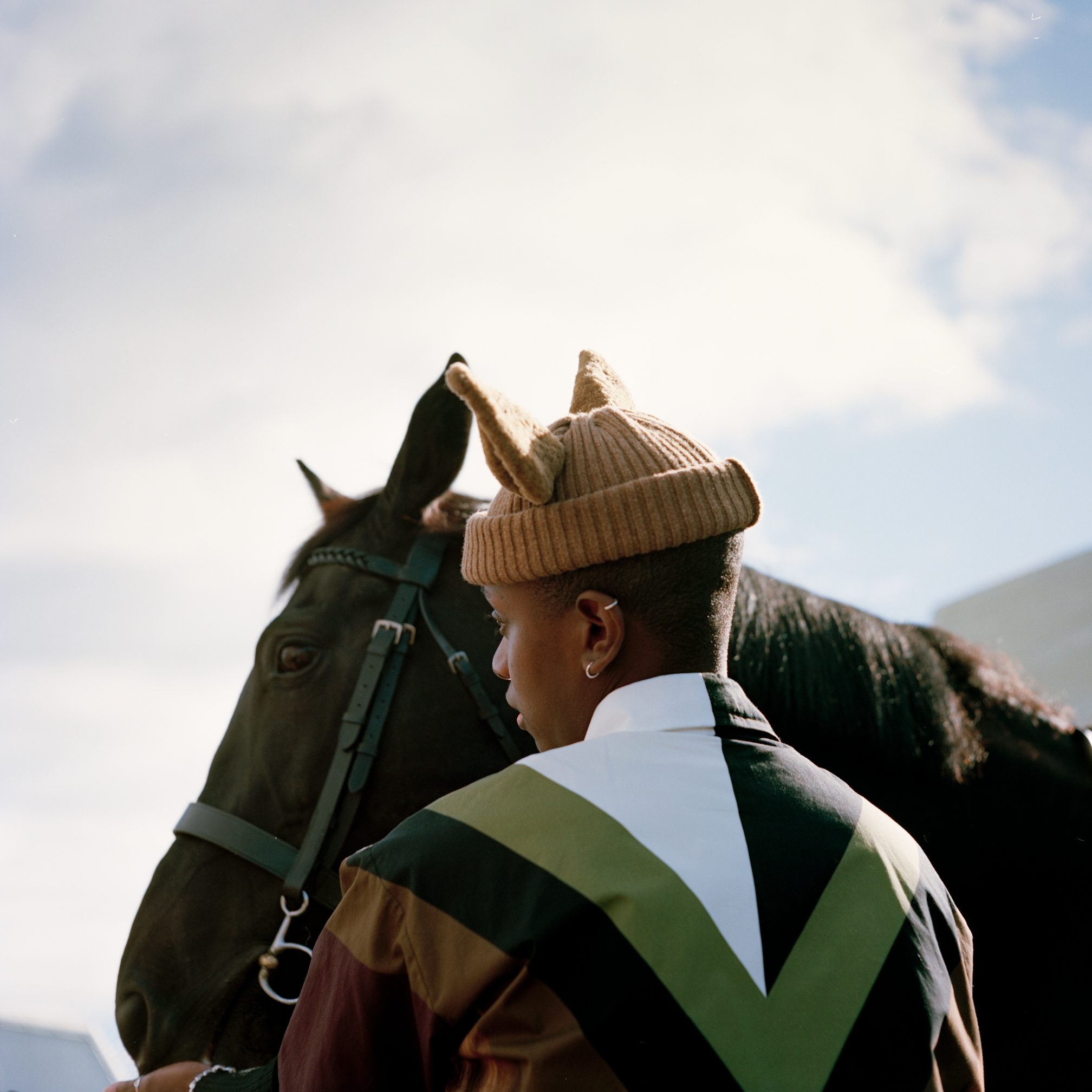
SHERELLE’s story is well told by now but we’ll go over it once more for those at the back. An aspiring DJ since the age of 16, her world was changed forever when she discovered Machinedrum’s mix for Mixmag and DJ Rashad’s Boiler Room session, as well as records like DJ Nate’s ‘Hataz Our Motivation’ and Omni Trio’s ‘Renegade Snares’. She broke into the industry side of music – including a stint as a video producer at Mixmag – while continuing to cut her teeth on the ones and twos, including a long, formative residency on Reprezent Radio and gigs wherever and whenever she could get them. She also formed a gang of mates with the same musical vision – including the aforementioned NAINA, YAZZUS and Dobby – and these are the young women who crowd around her and deliver pure hype during the Boiler Room clip that went properly viral and alerted the wider world to this rowdy, charismatic selector in a fisherman’s beanie from E17.

Now she wears the captain’s armband by proxy after an incredibly fervent period that includes Essential Mix Of The Year (“I wanted Pete Tong to be at home listening to it like ‘Jesus fucking Christ who the fuck is this?!”), a BBC Radio 1 residency, a clutch of DJ Of The Year awards, era defining performances in front of thousands at Brixton Electric, Warehouse Project and We Out Here, her debut 12”, first merch drop, and a forthcoming fabric compilation that is packed with blistering, exhilarating rave music.
SHERELLE will be the first to tell you that the jungle, d’n’b and footwork scenes have been thriving and will continue to do so. But it can well be argued that no one is throwing them into the same heady concoction as her or even playing like her, across any genre. People are drawn to her like moths to a flame. Her energy is infectious; she DJs like her life depends on it, she’s generous and fierce and really fucking fun and while she takes the art and the ethics incredibly seriously, she doesn’t take herself so, to the point where her current trademark salute to the crowd is a bassface and a raised middle finger. “I am nervous when I'm up there, so I need to release and get it out,” she says. “It's a very weird thing that happens where I'm blending and now all I want to do is just have these two songs on top of each other and cause the most damage to the room. I want someone to go, ‘fucking hell, what a show!’”
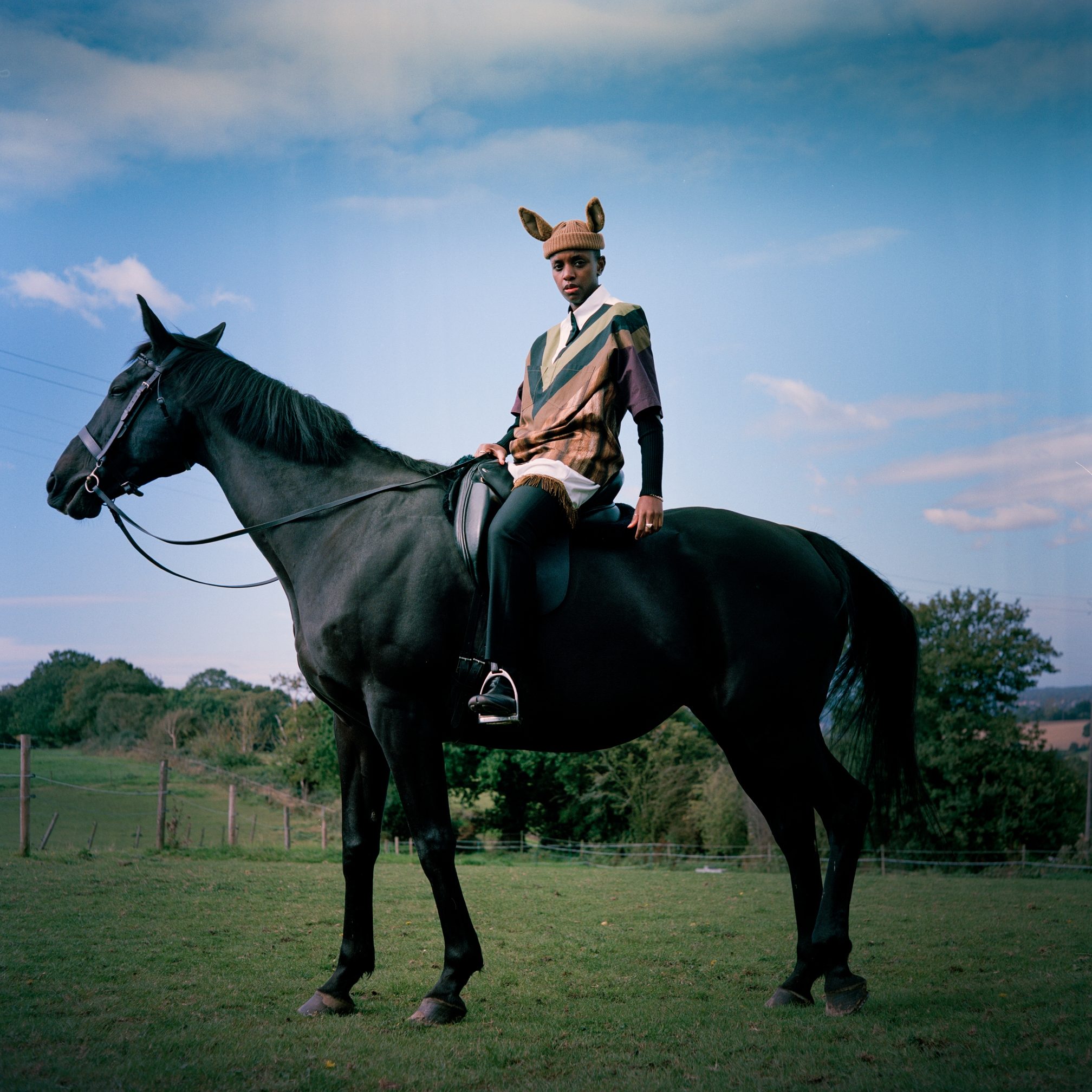
That she reaches a flow state when she’s DJing is apparent every time you see her play. She knows every track inside out, spinning incredibly intense music with ease like a matador in full control of a raging bull. She works the crowd with the nonchalance of a DJ playing to a house party full of best friends, every so often toasting the drop (and everyone in attendance, of course) with a glass of champagne. “It is an absolute joy and pleasure playing to people – it's the best thing ever. It's just this overwhelming feeling of pure happiness because you know that you're basically part of someone's night which they're going to remember, fingers crossed as long as it wasn't shit, for the rest of their lives.” She opens her sets with the already iconic line “Hello, for those who don’t know me, I am SHERELLE. And for those who do know me, I am SHERELLE.” Her use of the mic is a way to create a welcoming atmosphere during the duration of her set, as well as a chance to see how awake the crowd is, to remind them to be safe (“drink water”, “only take little bits”) and, of course, to display her dry sense of wit. Even as the stages get bigger, she wants the vibe to remain familial.
As she tours the circuit, SHERELLE has noticed her crowds increasing, as more and more people get to know her and start to trust what she does. This is par for the course for every DJ on the up, but on the dancefloor itself it’s clear she’s not only inspired people to delve further into the music she’s playing, but also broadened who is actually taking part. A crowd will always reflect the DJ who’s playing and as a proudly gay woman of colour she, her crew and her fans are smashing down the walls of bass-heavy dance music. Given this music was built by women – from Storm and Kemistry to Sarah Lockhart to Jordana to Jana Rush – SHERELLE is reclaiming the dance and queering a scene that, along with wider dance music, has become very white and very straight.
Read this next: 20 women who shaped the history of dance music
“If anything's going to get printed in this interview it’s that a change is coming, and people are not going to like it if you've purposely tried your hardest to avoid any sort of thing which makes you a better person or a better DJ or a better promoter — these coming years are going to end up biting you in the arse because of the fact that people over lockdown, they want to have fun, but they also realise how cold and callous the world has been,” SHERELLE says.
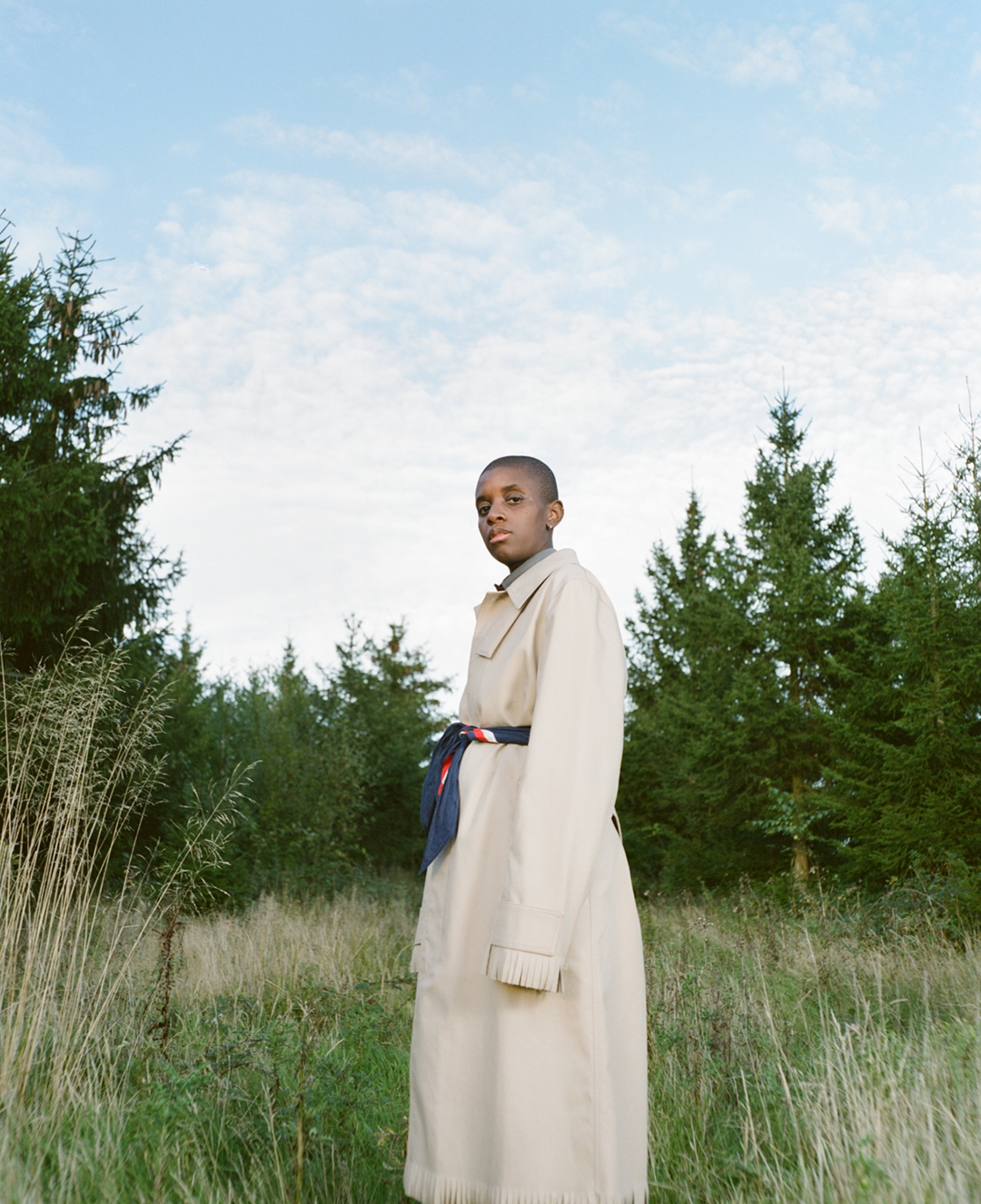
“If it's not our government – fuck the Tories. I'm not at the BBC anymore so I can say that – it's someone else taking the piss out of you. People want to be happy, they want to be safe, they want to be in a good space. So if you're a festival or a club, you name it, not providing that, people are just gonna pull out, even more than they did before and it's gonna be fantastic. And a lot of people are gonna only really want to go with places who are actually wanting to support really interesting things. Yes you can always make money with these bland line-ups, but realistically, if you're not providing anything that's new, eventually people are gonna notice that and they're gonna go somewhere else, meaning you might lose your business if you're not willing to take a chance on us. It's not just the fast tempo shit that's going to be coming through and smashing shit, it's definitely very big Black origin music and not many people are ready for it, but they're gonna have to get ready because these feel-good genres that are coming through, they're here to stay this time because they're coming from the generation that is used to listen to everything at once.”
Which brings us back to that open goal theory, the verb ‘dismantle’, which crops up multiple times throughout our conversation, and SHERELLE’s desire to open doors, create platforms and flip the industry upside down. Her Hooversound Recordings label, founded alongside NAINA, is intended to release “weird and wonderful music and we are there specifically to fuck up the scene in a sense of giving interesting cuts to electronic music” and her BEAUTIFUL platform, which has so far released one excellent, wide-ranging compilation of Black electronic music talent, and is intended to promote Black artists and push for representation and equity for Black people involved in music, with a vision of setting up talent schemes, a recording studio and venues where people of colour and the LGBTQ community can meet, dance and hold space.

“[Festivals and clubs] will never truly protect us because of the fact that some people don't respect us. And until the respect is there, it is never going to truly protect Black people. Or Black women, let’s be honest. Until people change their ideas and attitudes until people realise that these are very real issues, it's never truly going to be protecting anyone,” SHERELLE says. “If there's one thing I definitely want to do alongside my peers, it is to take charge and ownership of that, to command the respect. It's not a joke. I think ways that spaces could change is if people genuinely start looking around their groups and going, ‘this group’s a bit white isn’t it?’ How is it a whole group of white people are able to talk about what truly goes on with a Black or POC person? As much as it's an uncomfortable conversation for a lot of white people to have, they must understand that if your team in the music world is not mixed, then you might not be able to protect or actually help people.”
Read this next: How the dance music industry failed Black artists
SHERELLE says she wants to help artists who are trying to forge a career in music avoid having “crushing” moments that might make them want to quit. Low fees and promoters who don’t give a shit about artists are the first things that spring to mind. “My team is a very mixed team and I take great pride in it. My team is a lot of POC people and very few white people, but I think if my team was all POC would I be taken seriously or would there be microaggressions that would come? I know for a fact that there was definitely microaggressions towards the early days of wanting to pay me a set amount of money. ‘Why do I have to pay SHERELLE this?’ Because I'm bringing X amount of people into your fucking club or your festival! My name is quite big on the festival line-up but me and this person are not getting paid the same? Because they're a guy and they're white, you know?” She also mentions the time a promoter came up to her during a set to try and haggle a fee that her agent had set as well as the tension of being an artist of colour who tours in predominantly white towns and cities. These experiences will come as no surprise to non-white people and days after our conversation a new study by Black Lives In Music found that 73% of Black music professionals have experienced racism, with 80% experiencing microaggressions.
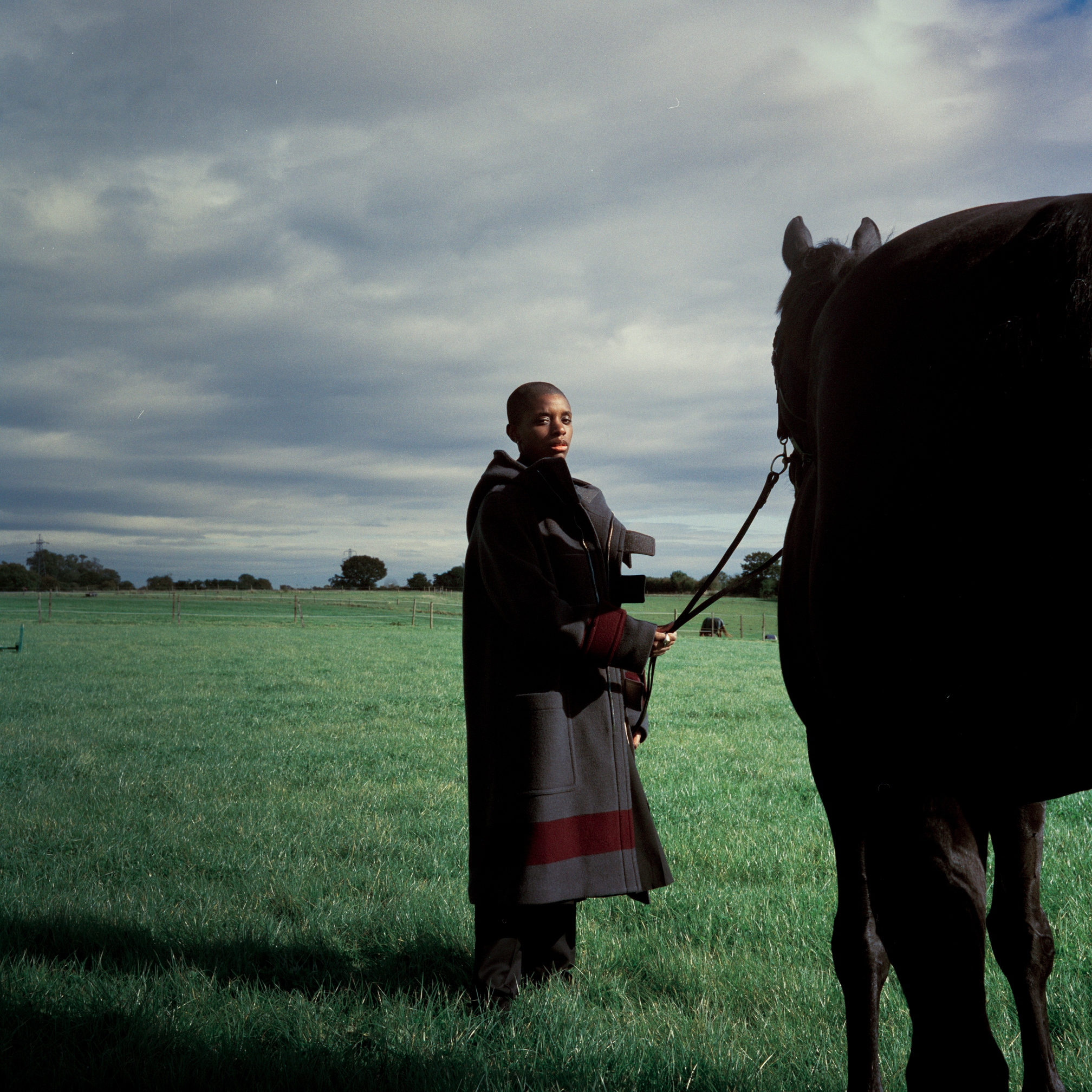
So what does it take to build a movement? “Everyone needs to be on the same page and you do need some people to fully lead and take charge. If you can clearly see that there's some form of opening or you have the ability to change something in front of you, if you put your mind to it, you're actually able to do it. There's no other way of thinking about it,” SHERELLE says. You can see from those early videos (or indeed, if you were there at those shows, you would have felt it) that the people around her have been urging her on and supporting her from the off. A community forms in the front row of the club. “Community is important because without it everyone would just be on their own island, doing their own thing. There is no common goal being made,” she says.
“There's so many different things that could be changed for the better, that will make the scene better. And once that work is done, everyone can coexist really happily and nicely. I think people need to stop pretending that there isn't anything wrong with the scene; we can all still rave, but if you think about all the places that earn a lot of money and if you think that if they were to ever invest 5% of that money into a really good initiative that would help young DJs or producers get into music, and how many people are probably being left or not being picked up because of it, it just makes me sad. So I think me and others, we're all understanding of that, if we're doing something community-based, we're all reaching out to people for the common goal of making the scene better.”
Read this next: Electronic music inclusion initiative launched to tackle harassment and discrimination in the industry
SHERELLE is building a community on empathy and respect and she’s bolstering that by joining the dots between other artists and the communities that they reside in. She pays homage to scene elders like Storm, Krust and Kode9 by hosting them on her radio shows or at her parties and always makes sure the artists on BEAUTIFUL get a platform too. She also regularly shouts out and swaps music with international collectives like Juke Bounce Werk, Worst Behaviour and HAUS of ALTR and basically advocates for the past, present and future of bass-heavy dance music, meaning those islands turn into a vast archipelago. This manifests in her mix and radio output but IRL too, like at her forthcoming fabric takeover, where she’s filling the club with legends and newcomers. “It's about making it bigger and bigger and bigger. I do actually think that our scene is a collective because we've always felt that we're on the other side, we can't get into the spaces and circles that will allow us to earn lots and lots of money to be able to fully function,” she says.
“We're not about the image of it, or the image of what music can look like and what it can bring. The main thing is the music and the music only. And the only way I can keep it relevant is to just constantly be thinking and understanding and knowing and listening to the music that's around me, listening to the new kinds of forms and ways that people are going to be making footwork, jungle, anything above 160 BPM. Constantly finding ways to use my own platform to bolster people in order to get them out there, get people listening to them, speaking about them, you name it, because I think that's the only way you're going to keep stuff relevant is if you keep yourself relevant too. I'm constantly looking into every single orifice where I can find any sort of crazy track or set, any emails I might have missed over the time that I've been touring and all this kind of shit and whatever, anyone I haven't signed, these are all things which I always keep in the back of my mind.”
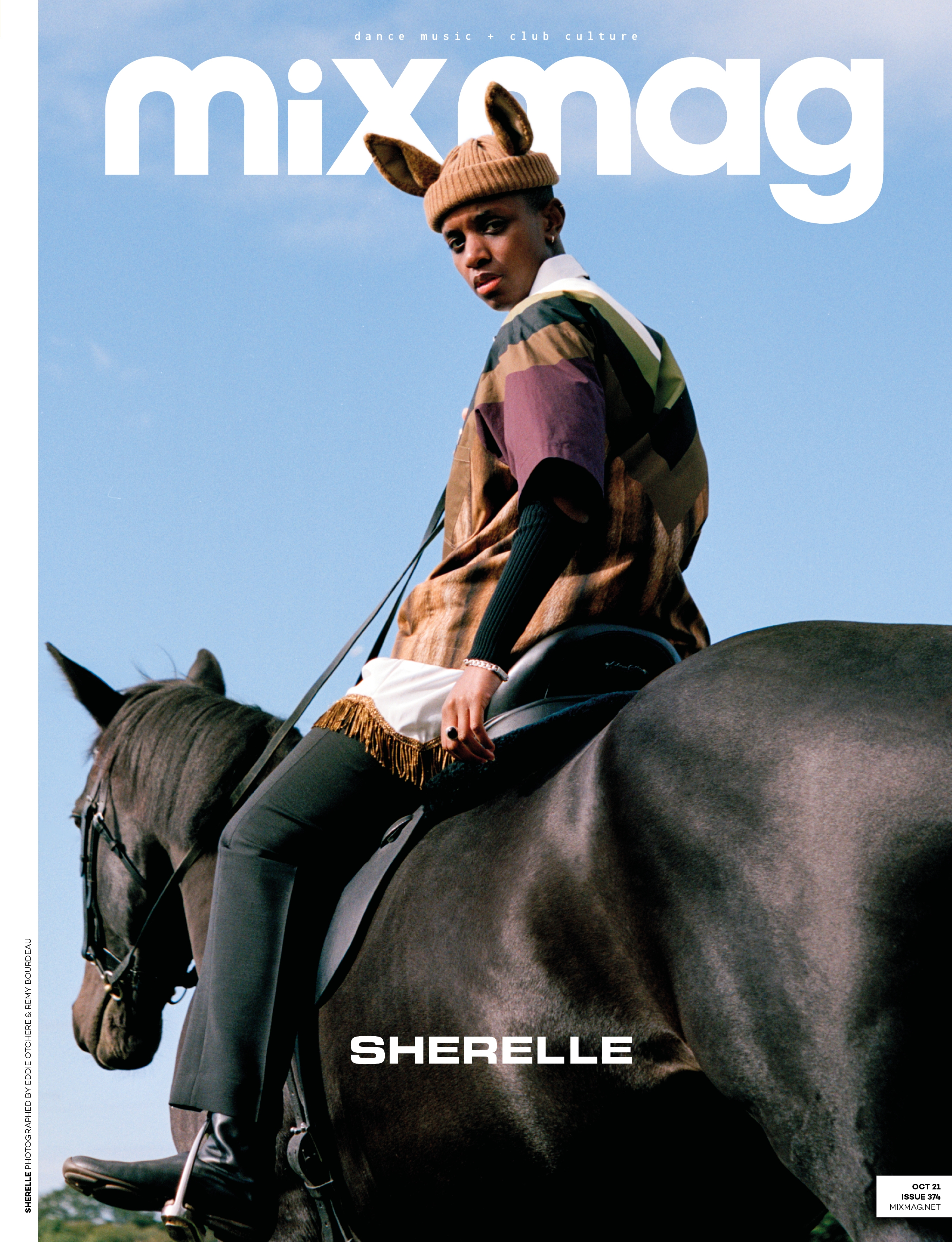
There’s a very neat moment of curation at this year’s We Out Here, where SHERELLE follows Overmono and plays before Storm and Fabio & Grooverider. It’s like watching a brief history of UK breakbeat culture, as the youngers flow seamlessly into the elders. It was a thrill to watch the connections made in real time. Of course, SHERELLE is acutely aware of her place in this lineage, which has powered UK dance music since 1990. “You’re coming to see my sets because I'm trying to educate you but also give you a fun time,” she says. “Education can be new. You can learn about new things, but you do need the old things in order to understand the new things a lot more. And if you don't understand the new stuff, it's probably because you don't understand the old stuff and vice versa, you know? How did we get here?” Her sets, such as the visceral forthcoming fabric comp which she describes as a “serious honour” that will hopefully “bring people the much-needed release of energy that we've all craved for the last 18 months”, contain old things that sound new and new things that sound old as she uncovers and connects high speed treasure from across a canon which dates back to 1990 and, with a new generation on the rise, will now live on for even longer.
Read this next: Intergenerational trust: We Out Here's connection of communities makes your heart sing
“I love the fact that there's new people to be found or to come across and just to support in any sort of way. I've seen firsthand what happens when you are a new person, and you get that moment, and it changes your life forever,” she says. “You never know when that could happen to someone else. Someone could have watched a stream of mine or listened to a set of mine, and that could have changed their whole musical outlook, and then I will eventually meet them in about 20 years and they will let me know about this. And I'd be like, ‘Oh, that's so nice. I'm so happy that you're here.’ You know, because that's changed someone's life. I think it's just good to be respectful and nice to people.” Her approach also acts as a vital archiving technique that explicitly highlights UK dance music as music of Black origin, which is crucial for keeping the correct historical narrative in place and for building into the future. Now, a new era begins. This is the start.
Fabric presents SHERELLE is released November 26th on CD, double LP and on all digital formats. FABRICLIVE: Fabric presents SHERELLE is on Nov 5th with DJ Krust, Mickey Finn, Kessler & very special guests TBC.
Thanks to Burberry and Harolds Park.
Seb Wheeler is Defected's Head of Digital and a freelance writer, follow him on Twitter
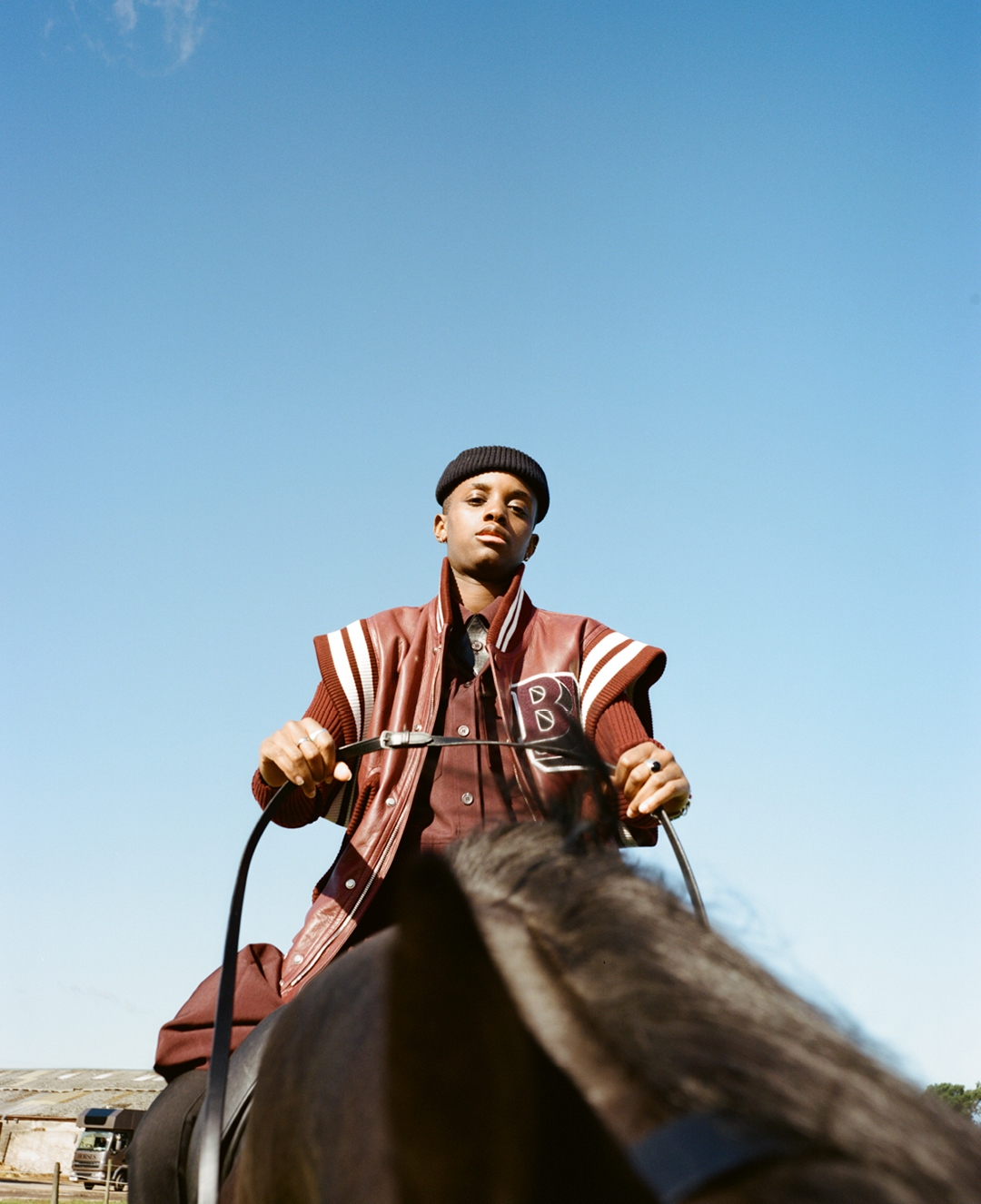
Look 1
Burgundy geometric-print cotton short-sleeve shirt, POA, Optic white silk crepe de chine vest with bullion fringing, POA, Black grain de poudre wool classic-fit tailored trousers with panel detail, POA, Beige rib-knit wool beanie with faux-fur deer detail, POA, Black rib-knit wool sleeves with cut-out detail, POA, Palladium-plated signet ring, £290, Black leather sock boots with crystals, £1490
Look 2
Soft fawn cotton gabardine car coat with fringing and scarf detail, POA, Tempest grey silk shirt with fringing, POA, Black grain de poudre wool classic-fit tailored trousers, POA, Black leather sock boots with crystals, POA
Look 4
Deep maroon plongé leather sleeveless varsity jacket with reconstructed pockets, POA,Deep maroon mohair wool pleated shirt dress, POA, Black grain de poudre wool classic-fit tailored trousers , POA, Deep maroon rib-knit wool sleeves with cut-out detail, POA, Black leather sock boots, £620
All Burberry


